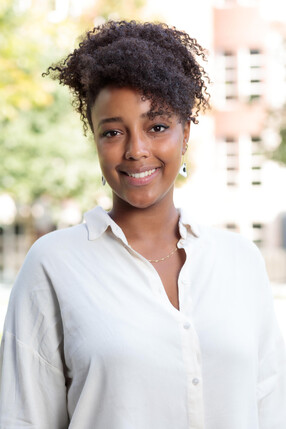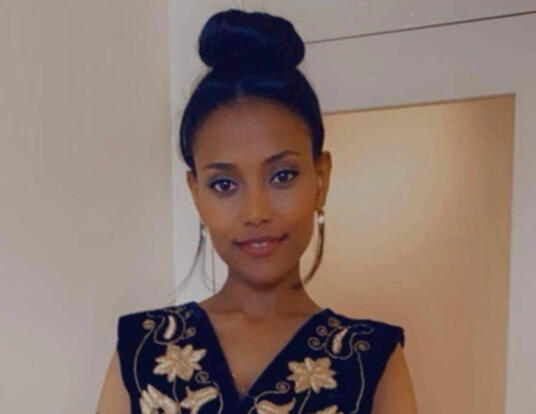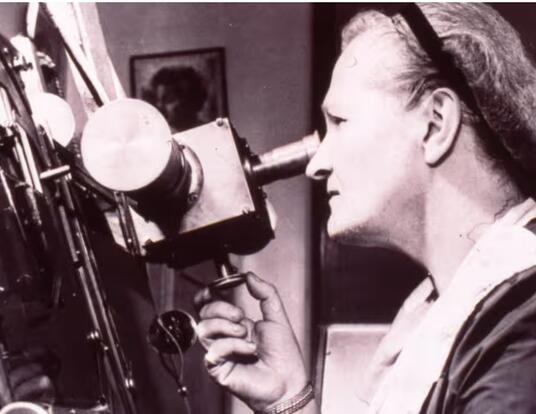The Economic Ties that Bind
Harvard Griffin GSAS Voices: Awa Ambra Seck, PhD ’23
Throughout its 150th anniversary year, Harvard Griffin GSAS is foregrounding the voices of some of its most remarkable alumni and students as they speak about their work, its impact, and their experiences at the School.
Awa Ambra Seck, PhD ’23, studies political economy and government. She discusses economic development in Africa as seen through the lenses of cultural anthropology and history; overcoming challenges that arose due to COVID-19; and her growth as a scholar at Harvard Griffin GSAS.
Family Versus Cohort

In my work, I merge anthropology with economics to see how different precolonial social structures can affect economic interactions in Africa today. In some societies in Kenya and Uganda, for instance, the main social group is the family, but, in others, individuals identify primarily with people their own age—the cohort with whom they travel through different phases of life. These individuals still have ties to their families, but when they receive money, they tend to distribute it among that cohort.
These differences have important consequences when you think about national economic policies, such as pension systems. When pensions are given to older people in extended family-based societies, for example, they pass those on to their children, resulting in improvements in the health of their offspring. But in age-based societies, older people are more likely to keep the money for themselves. Economists have to be aware of these dynamics and design their policies with them in mind.
I also explore the impact of colonialism on economic development over time. One of the topics I’m studying is how the organization of the French army affected immigration from North Africa and sub-Saharan Africa to Europe. What I find is that villages or cities where soldiers spent time have higher rates of immigration to Europe and that this emigration leads to a change in the labor market of the communities of origin: people work less in agriculture and are more likely to own a business. We’re still not sure why there is this effect consistent with economic development, but it might have to do with remittances that are sent by emigrants to their families at home.
Navigating COVID-19 and the Colonial Archives
Much of my research had to be done in the countries I study. That meant going to Kenya, Uganda, or Senegal to collect data, which became impossible during the COVID-19 pandemic. Instead, I contacted associations of migrants with whom I was already working for another project and started conducting interviews. I took their family histories and asked them how they learned about the opportunity to emigrate. What came up often was the French army. My own grandfather’s brother served in the army, but I never understood how many others from French colonies did as well. In all, 6 million from the colonies joined the French army and fought in the First and Second World Wars and the First Indochina War. It’s a part of history that has been forgotten in the West.
The other important lesson I learned during the pandemic was how to use archives. A lot of material is not digitized, so I had to take pictures. Often, I didn’t even know what kind of materials are there. (Sometimes, even the employees at the archives don’t have an idea!) So, I had to go and explore, which I love. Archival work is something that I would really like to keep doing.
Learning and Growing as a Researcher
I grew immensely during my time at Harvard Griffin GSAS. I learned how to conduct economic research on developing countries. For instance, the anthropological part of my work was passed onto me by my advisor, Nathan Nunn, who has left Harvard now but was the first to introduce me to age-based societies.
Pursuing a PhD can be an up-and-down experience. Sometimes it was hard to stay motivated. But the people in the department were incredible; they allowed me to change my research because of COVID-19. I don’t know if that would have happened anywhere else. My advisors—Emily Breza, Rema Hanna, Gautam Rao, and Rema Hanna—and the other professors in the Department of Economics and the Harvard Kennedy School took the time to talk to me and help me think about new research ideas. Professors Claudia Goldin and Alberto Alesina were supportive and encouraging. Moreover, the Department of Economics helped me with internal funding for my research and grant applications for external funding. I’m very grateful for that.
Get the Latest Updates
Join Our Newsletter
Subscribe to Colloquy Podcast
Simplecast





